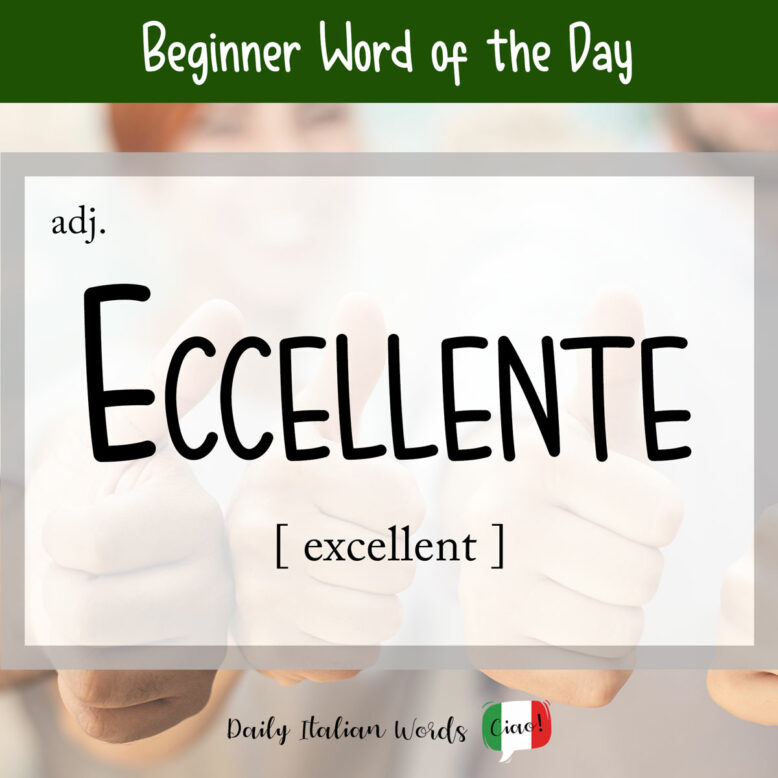Do you want to talk about something truly worthy of praise? Then it’s time to learn the adjective eccellente, which is the Italian word for excellent!

Eccellente‘s form remains the same regardless of whether you are describing a masculine or feminine subject. In its plural form, it becomes eccellenti with an -i on the end.
Some things that are frequently described as being eccellenti include:
- un lavoro eccellente = an excellent job
- un giocatore / pittore / scrittore eccellente = an excellent player / painter / writer
- una prestazione eccellente = an excellent performance
- un’idea eccellente = an excellent idea
- un risultato eccellente = an excellent result
Eccellente is one of those adjectives that can come before or after the noun it modifies. For example, it is possible to say both uno scrittore eccellente and un eccellente scrittore for an excellent writer. (To discover more about the placement of adjectives in Italian, we suggest reading this excellent blog post on Transparent Language.)
Il rapporto qualità-prezzo è davvero eccellente.
It is truly excellent value for money.

You can also use eccellente to describe the quality of good food, although expressions such as buono are squisito are a little more common.
In the world of journalism, the definition of eccellente can be stretched to things of great importance, or people who enjoy considerable fame or notoriety. For example, a VIP is known as un personaggio eccellente (lit. an excellent celebrity / character). In archaic Italian, it was also an honorific for those who held high offices.
C’erano molti personaggi eccellenti all’inaugurazione della nuova stazione.
There were many VIPs at the opening of the new station.
Heather Broster is a graduate with honours in linguistics from the University of Western Ontario. She is an aspiring polyglot, proficient in English and Italian, as well as Japanese, Welsh, and French to varying degrees of fluency. Originally from Toronto, Heather has resided in various countries, notably Italy for a period of six years. Her primary focus lies in the fields of language acquisition, education, and bilingual instruction.


